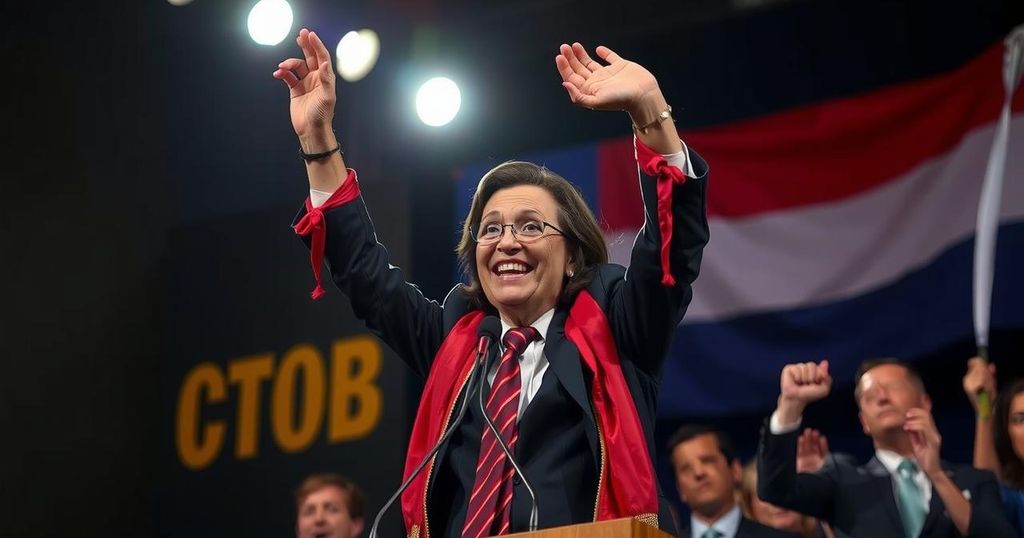Yamandu Orsi of the Frente Amplio coalition has been elected president of Uruguay, defeating Alvaro Delgado in a close runoff election. Orsi’s victory is seen as a public rebuke of the outgoing conservative administration. He has pledged to promote national dialogue and confront pressing issues such as crime and economic recovery. His campaign gained traction with support from former president Jose “Pepe” Mujica, who is admired for his leadership during the left’s previous terms in office.
Yamandu Orsi, representing the left-wing Frente Amplio coalition, was declared the winner of Uruguay’s presidential election, signaling a shift in political power after five years of conservative governance under President Luis Lacalle Pou. Orsi’s victory was confirmed with 94.4 percent of ballots counted, showing him with 1,123,420 votes against Alvaro Delgado of the National Party, who received 1,042,001 votes. Orsi emphasized his commitment to national dialogue in his victory speech and pledged to address pressing issues such as crime and economic recovery.
The election outcome reflects a public desire for change, as voters expressed dissatisfaction with rising crime rates and economic challenges experienced during the conservative administration. Orsi’s campaign benefitted from the endorsement of former president Jose “Pepe” Mujica, who is revered for his past leadership. Uruguayans demonstrated a strong commitment to democracy, illustrated by compulsory voting in the elections. Following this electoral victory, Orsi will govern amid a Senate majority for his party, while facing a minority in the Chamber of Representatives.
Yamandu Orsi’s election as president of Uruguay marks a significant political transition within the country, moving away from the center-right policies of the outgoing administration. The Frente Amplio coalition previously held power from 2005 until 2020 but was ousted due to concerns regarding economic performance and public safety. The current electorate is grappling with issues such as drug-related crime and economic stabilization, necessitating leadership that navigates these challenges effectively while fostering social dialogue. Historically, Uruguay has maintained a reputation as one of Latin America’s most stable democracies, and it has made notable advancements in social reforms, including the legalization of abortion and cannabis. Consequently, the recent election is pivotal in determining the nation’s future direction on social, economic, and safety issues.
The election of Yamandu Orsi signifies a notable return to left-leaning governance in Uruguay, as voters have expressed a clear desire for a shift from the conservative policies that have prevailed in recent years. Orsi’s approach aims to prioritize national dialogue and address vital public safety concerns without instituting radical changes to the economy. As the new administration takes shape, the focus will remain on revitalizing growth and confronting drug-related crime while building upon legacy achievements of the past leftist government.
Original Source: www.kten.com






